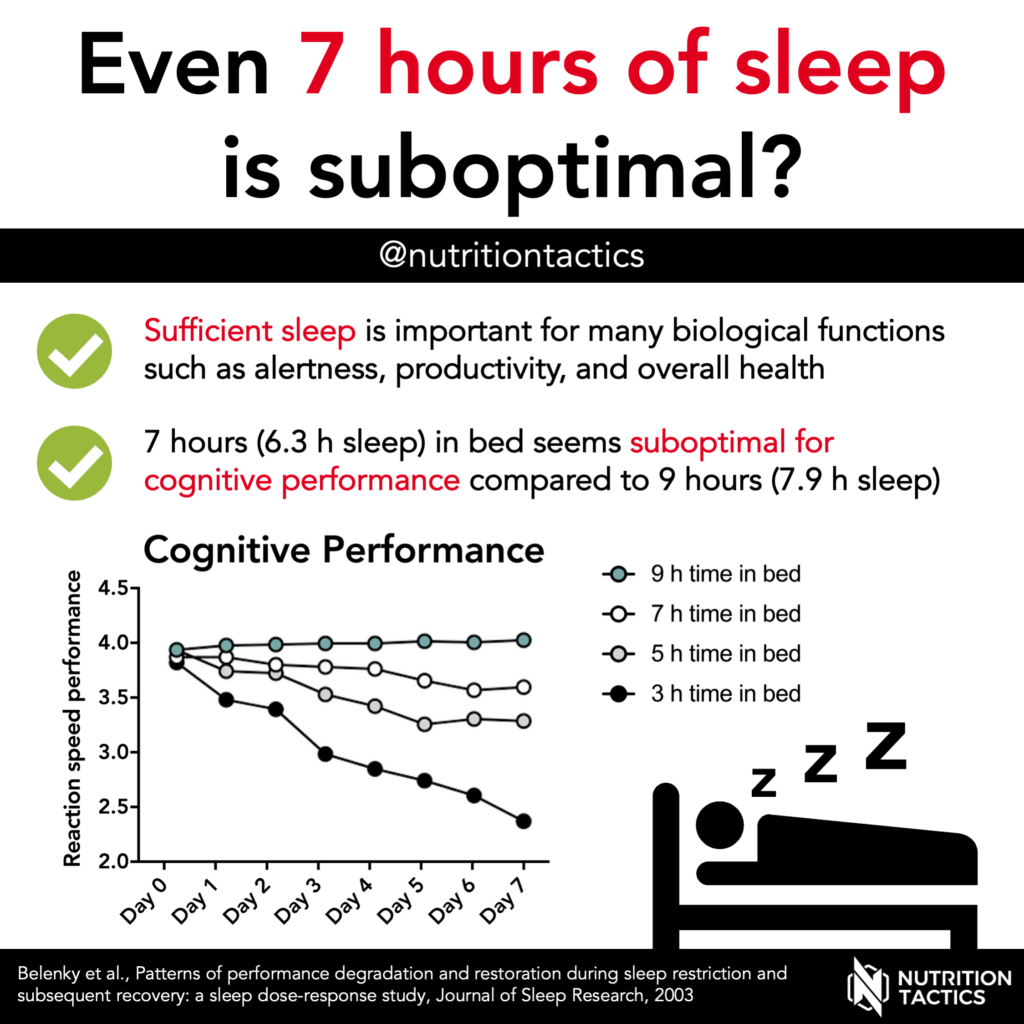Is 7 hours of sleep really enough?
It is recommended to get 7 to 9 hours of sleep for factors such as alertness, productivity, and health (National Sleep Foundation). However, the difference between 7 or 9 hours of sleep is still pretty big. So is what is the optimal sleep duration?
This study investigated cognitive performance for different lengths of sleep: 3, 5, 7, or 9 hours time in bed. Participants completed cognitive performance tests every day.
As expected, 3 hours in bed (2.87 h of sleep) resulted in the lowest cognitive performance. This was followed by 5 hours in bed (4.66 h sleep) and then the 7 hours treatment (6.28 h sleep). The 9 hours in bed treatment (7.93 h of sleep) showed no decline in cognitive performance.
In the 3 hours in bed treatment cognitive performance continued to decline daily. In contrast, cognitive performance appeared to stabilize in the 5 and 7 h treatments, albeit at a reduced capacity.
Therefore, it is possible that you feel “normal” when you are actually sleep restricted. Your brain has adapted to the lower amount of sleep by working at a reduced rate. But since this is your new normal, you don’t feel like you are functioning sub optimally or may need more sleep.
Go to the next infographic in the sleep series:
Insufficient sleep hampers fat loss?


Don’t agree. If I stay in bed more than 8 hours, I feel tired and my brain go slowly. Top performance is around 7 hours in bed.
People who are chronically sleep deprived feel “weird” when they finally have some good sleep.
Also, after a longer than usual sleep, people sometimes wake up with sleep drowsiness. But once they properly wake up, their cognitive performance is better.
Hmmm? Well I’ll be! I wonder if 7.5 hours with a 1-2 hour nap has a similar impact? I actually use that pattern when it’s available.
My guess would be yes. That’s an impressive amount of sleep, good job.